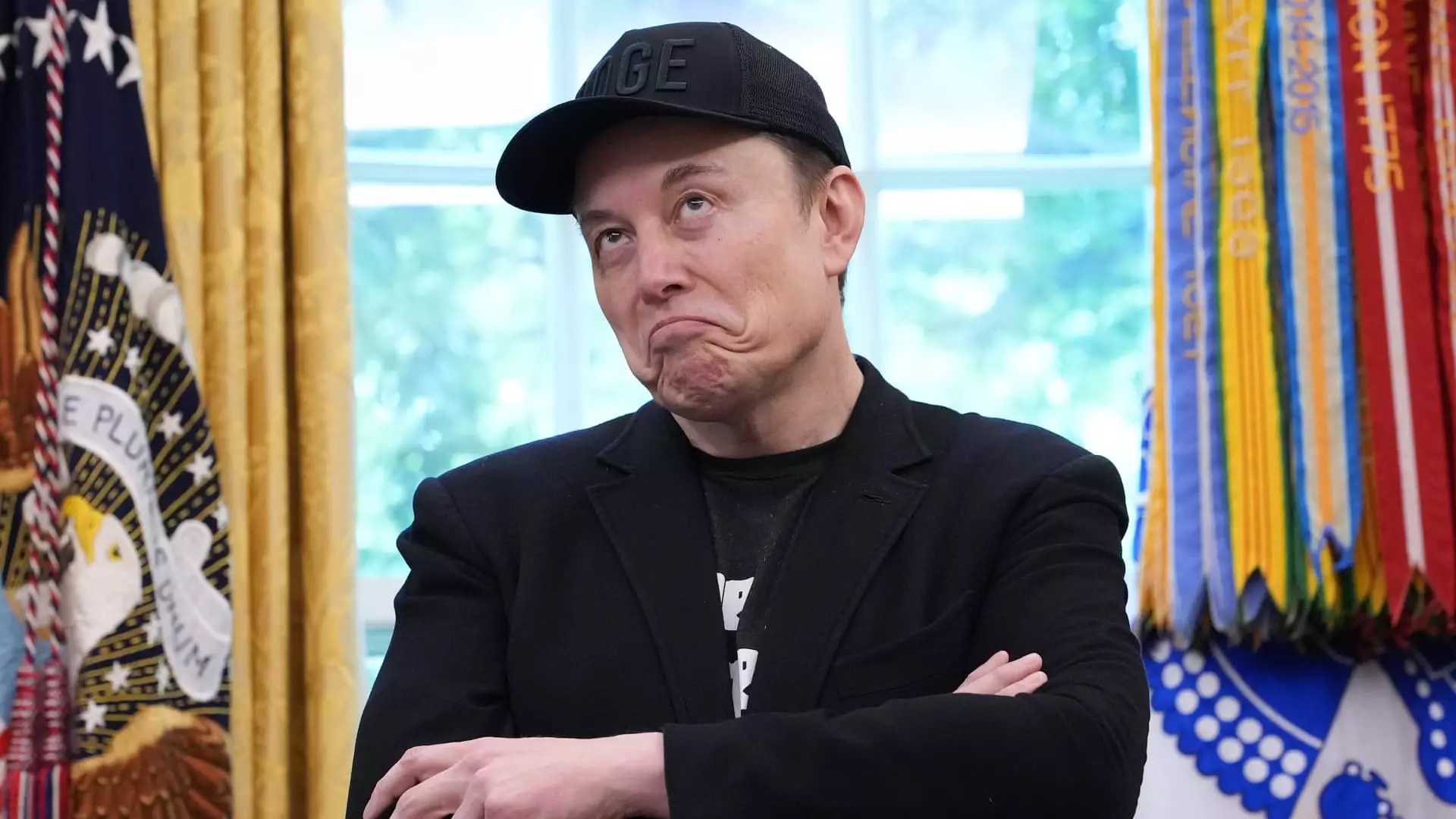In an era where corporate influence is often sidelined by political egos, Elon Musk’s recent comments signal a bold assertion of individual agency against the tide of short-term political impulses. Musk’s vocal criticism of the government’s spending practices underscores his belief that technological innovation and economic sustainability should transcend partisan politics. Rather than remaining silent amidst legislative chaos, Musk has chosen to leverage his platform to spotlight concerns about mounting national debt and misguided policies. This stance reveals not only his willingness to challenge entrenched interests but also exemplifies a leadership style rooted in conviction rather than conformity. It’s a wake-up call that technological giants can serve as voice of reason, advocating for long-term stability over policymakers’ shortsightedness.
Contradictions and Compromises in the Green Energy Agenda
Musk’s criticism of the recent bill also touches a critical point: the potential rollback of green energy incentives. His companies thrive on government support—tax credits, grants, and mandates that push innovation. The bill’s reduction of support for solar, wind, and electric vehicles signals a troubling shift in policy priorities. Musk’s frustration is rooted in the belief that meaningful progress toward sustainability cannot be achieved by withdrawing support at crucial junctures. As a pioneer promoting clean energy solutions, he sees these policy changes as short-sighted truncations from a future that demands consistent investment and unwavering commitment. The disconnect between political rhetoric and actual policy implementation could stall the very technologies that could help mitigate climate change. Musk’s stance demonstrates that leadership must involve defending a vision of sustainable growth against populist or budget-driven agendas.
The Broader Implications of Musk’s Defiance
More than a personal feud with political figures, Musk’s outspoken comments carve out a broader narrative about accountability and responsibility. His labels—such as “DEBT SLAVERY bill”—are provocative but serve a purpose: to force a conversation about the true costs of short-term fiscal gains. The bill’s projected addition of trillions to the national debt raises questions about the sustainability of current economic strategies. While critics argue that government spending is necessary for growth, Musk’s perspective cautions against ignoring long-term consequences for immediate political wins. His approach exemplifies a growing trend of entrepreneurs taking a stand, using their influence to shape debates that traditionally fell into the political arena. It challenges us all to consider whether corporate voices can and should act as stewards of future fiscal health, demanding policies aligned with sustainable prosperity, not just electoral gains.
A Call for Consistency and Courage in Policy Making
Elon Musk’s opposition to this legislation underscores a critical need for integrity and consistency in policy development. His repeated criticisms reveal a belief that meaningful change requires courage—not just political maneuvering. Musk’s confrontations with Trump, his calls for smarter spending, and his warnings about stacking debt serve as an indictment of short-sighted policymaking. It’s a reminder that innovation and sustainability should be the cornerstones of economic strategy. Musk’s willingness to speak out, despite facing backlash and market volatility, demonstrates the kind of leadership that values future generations over fleeting political victories. If anything, his stance compels leaders and citizens alike to reconsider what true progress looks like—a future where economic and environmental sustainability go hand in hand, guided by conviction and foresight rather than expedience.


Leave a Reply